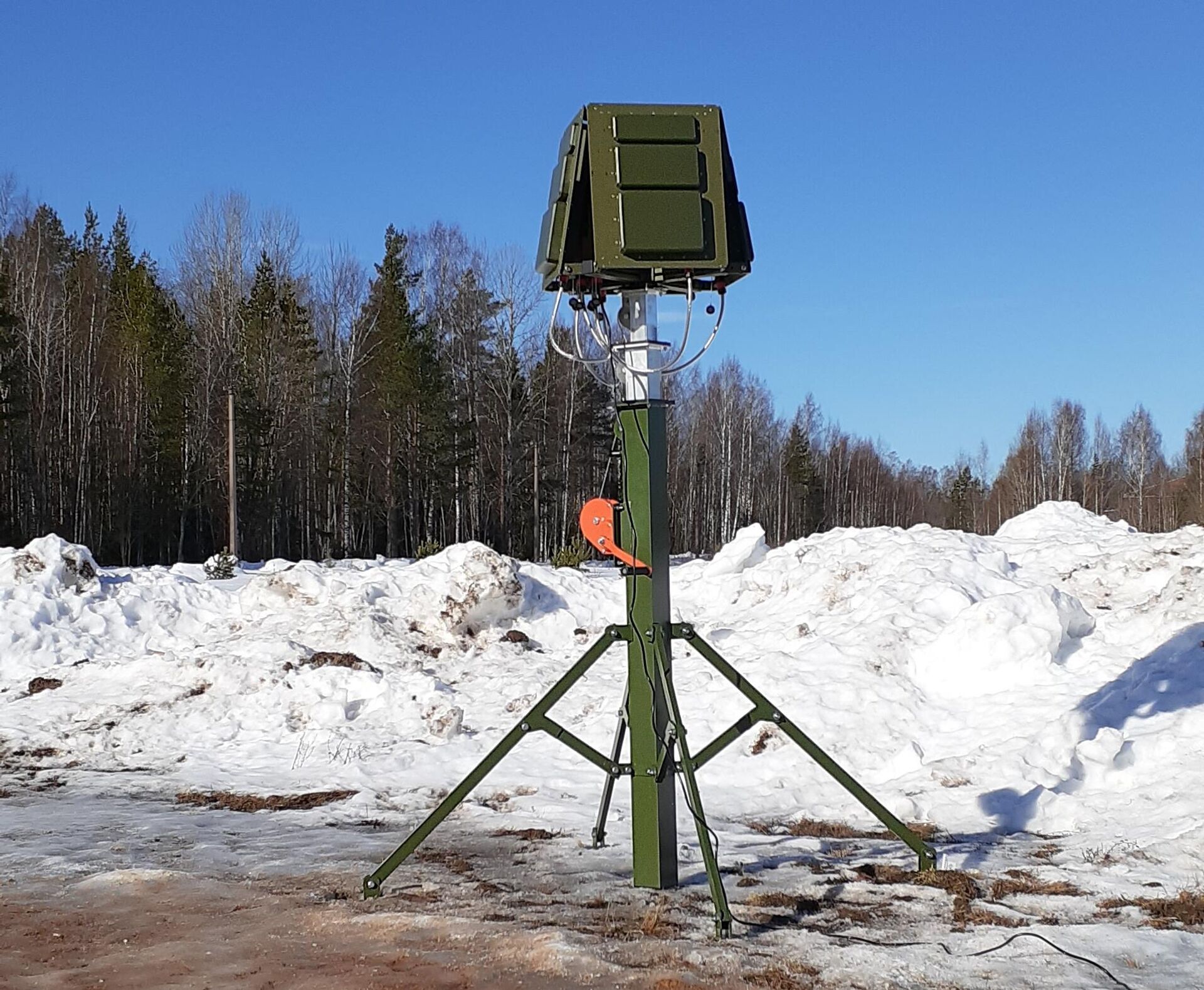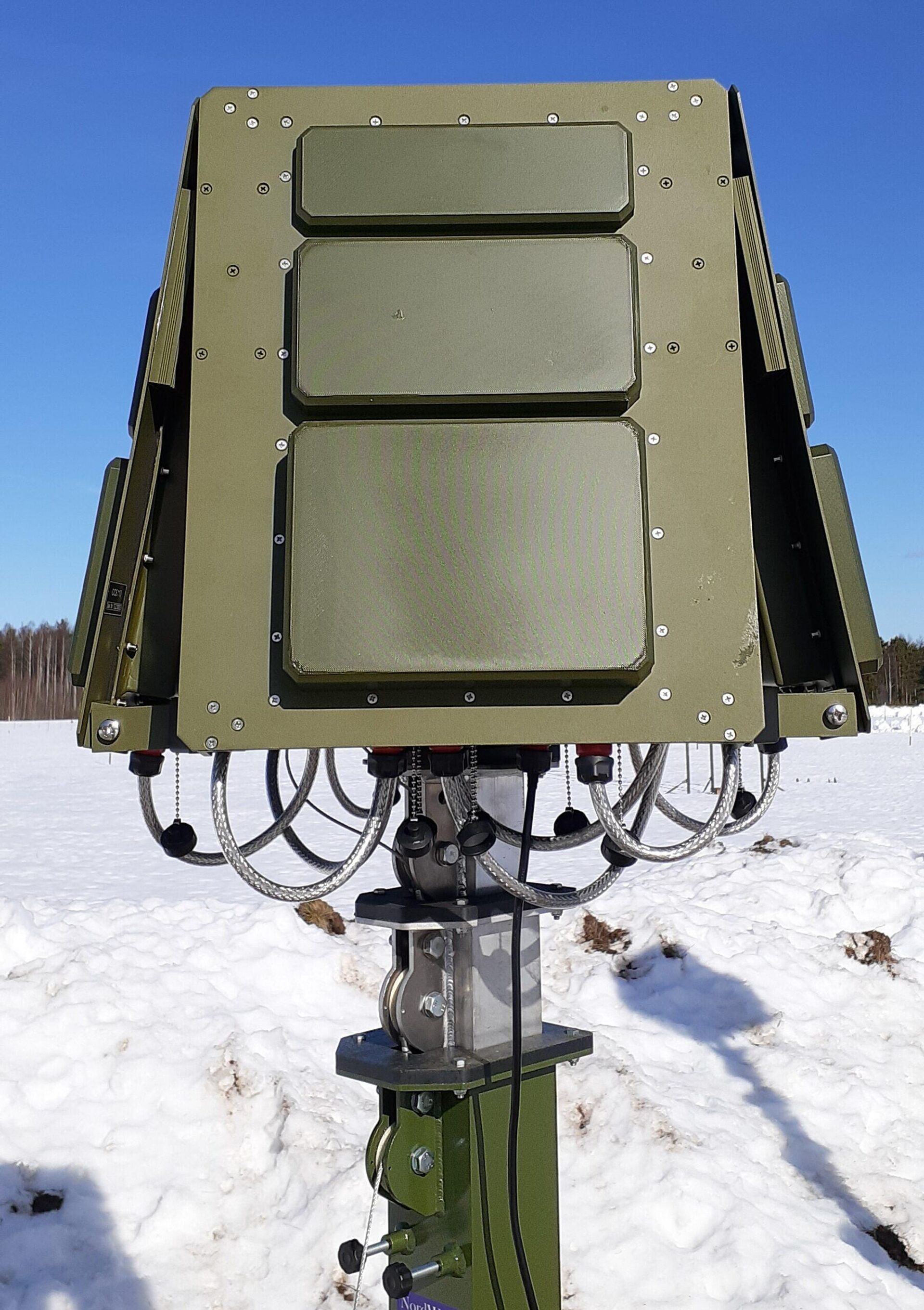https://sputnikglobe.com/20231228/hammerless-sickle-russia-successfully-tests-new-anti-drone-system-1115852348.html
Hammerless 'Sickle': Russia Successfully Tests New Anti-Drone System
Hammerless 'Sickle': Russia Successfully Tests New Anti-Drone System
Sputnik International
The Serp-VS5D is the latest addition to the Serp (lit. Sickle) line of anti-drone systems made by the Ruselectronics holding’s Vektor Research Institute, a subsidiary of Russia’s defense conglomerate Rostec.
2023-12-28T12:52+0000
2023-12-28T12:52+0000
2023-12-28T13:12+0000
military
rostec
ruselectronics
drone
countermeasures
https://cdn1.img.sputnikglobe.com/img/07e7/0c/1c/1115855354_0:100:2294:1390_1920x0_80_0_0_c962e22f11c1cfa03acc5edcba0bf9fb.jpg
Russia has successfully tested a new advanced anti-drone system at an unspecified piece of “energy infrastructure” somewhere in the country, according to a press release issued by the designer company.The Serp-VS5D is the latest addition to the Serp (lit. Sickle) line of anti-drone systems made by the Ruselectronics holding’s Vektor Research Institute, a subsidiary of Russia’s defense conglomerate Rostec.How Does Serp Work?When deployed, Serp-VS5D detection components constantly monitor the guarded area for signal exchanges between drones and their operators. When such a signal is detected, Serp’s anti-drone components come into play as the system immediately starts suppressing signals in the corresponding bandwidths.Serp’s countermeasures effectively deprive drone operators of the ability to control their UAVs. The system also cuts off drones from satellite navigation systems such as GPS, thus preventing these drones from completing their mission autonomously.Serp-VS5D can engage drone targets at a range of up to five kilometers “in clear visibility,” the press release stated, noting that the system can be used against drone swarms as well.While Serp anti-drone systems monitor the airspace around them at a 360-degree angle, it can be switched to monitor selected 90-degree sectors to allow friendly drones to operate in the area.What Signals Can Serp System Suppress?According to the information available on Vektor’s website, Serp-VS systems can suppress signals in several bandwidths ranging from 300 to 5,600 MHz and disrupt signals from satellite navigation systems such as GPS, GLONASS, Galileo and BeiDou.
https://sputnikglobe.com/20231226/russias-drone-dominance-may-force-kiev-to-retreat-1115820239.html
Sputnik International
feedback@sputniknews.com
+74956456601
MIA „Rossiya Segodnya“
2023
News
en_EN
Sputnik International
feedback@sputniknews.com
+74956456601
MIA „Rossiya Segodnya“
Sputnik International
feedback@sputniknews.com
+74956456601
MIA „Rossiya Segodnya“
russia anti drone system, russia anti drone technology, russian drone defense
russia anti drone system, russia anti drone technology, russian drone defense
Hammerless 'Sickle': Russia Successfully Tests New Anti-Drone System
12:52 GMT 28.12.2023 (Updated: 13:12 GMT 28.12.2023) The state-of-the-art defense system claims to be able to cut off UAVs from their operators and satellite navigation systems, making drones unflyable.
Russia has successfully tested a new advanced anti-drone system at an unspecified piece of “energy infrastructure” somewhere in the country, according to a press release issued by the designer company.
The Serp-VS5D is the latest addition to the Serp (lit. Sickle) line of
anti-drone systems made by the Ruselectronics holding’s Vektor Research Institute, a subsidiary of Russia’s defense conglomerate Rostec.
When deployed, Serp-VS5D detection components constantly monitor the guarded area for signal exchanges between
drones and their operators. When such a signal is detected, Serp’s anti-drone components come into play as the system immediately starts suppressing signals in the corresponding bandwidths.
Serp’s countermeasures effectively deprive drone operators of the ability to control their UAVs. The system also cuts off drones from satellite navigation systems such as GPS, thus preventing these drones from completing their mission autonomously.

26 December 2023, 13:53 GMT
Serp-VS5D can engage drone targets at a range of up to five kilometers “in clear visibility,” the press release stated, noting that the system can be used against drone swarms as well.
While Serp anti-drone systems monitor the airspace around them at a 360-degree angle, it can be switched to monitor selected 90-degree sectors to allow friendly drones to operate in the area.
What Signals Can Serp System Suppress?
According to the information available on Vektor’s website, Serp-VS systems can suppress signals in several bandwidths ranging from 300 to 5,600 MHz and disrupt signals from satellite navigation systems such as GPS, GLONASS, Galileo and BeiDou.





